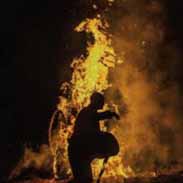HISTORY TEST WW1 – Flashcards
Unlock all answers in this set
Unlock answersquestion
Which concept is represented in these World War I recruiting posters?
answer
nationalism
question
Which event is considered the immediate cause of World War I?
answer
Assassination of Archduke Franz Ferdinand
question
Which area of Europe was known as the "Powder Keg" of Europe prior to the outbreak of World War I?
answer
B
question
Woodrow Wilson's Fourteen Points influenced many colonial peoples in Asia and Africa to
answer
Seek self-determination
question
One goal of the League of Nations was to..
answer
Promote peaceful relations worldwide
question
The term militarism can best be defined as
answer
Buildup of armaments in preparation for war
question
What was a major cause of World War I?
answer
Militarism in the nations of Europe
question
Which conclusion is best supported by this telegram?
answer
Nicholas II hoped diplomacy would prevent war
question
Which war is most closely associated with the telegram Nicholas II sent to Wilhelm II?
answer
World War I
question
What was a direct result of World War I?
answer
Germany lost its colonies in Africa and Asia
question
This cartoonist is referring to the way Germany was affected in 1919 by
answer
The Treaty of Versailles
question
Many historians believe that the harsh terms found in the Treaty of Versailles helped lead to
answer
World War II
question
Which means of warfare is described in this passage?
answer
Trench
question
The Zimmermann note, which pushed the United States to enter the war, exposed the German plan to
answer
Help Mexico regain U.S. territory
question
Which statement regarding World War I is an opinion rather than a fact?
answer
Citizens of the Allied nations showed more patriotism than those of the Central Powers.
question
The countries in dark gray on this map can best be described as
answer
European countries formed immediately after World War I
question
Heavy military losses in World War I, food and fuel shortages, and opposition to the czar led to the
answer
Russian Revolution
question
Before 1914, nationalism in the Balkan Peninsula contributed to
answer
Resistance by ethnic groups to Austrian rule
question
Which time period in German history is most accurately represented in this map?
answer
Between World War I and World War II
question
Who were the "Big Four" countries that met at the Paris Peace Conference in 1919?
answer
United States, Great Britain, Italy, France
question
What took place FIRST?
answer
Archduke Ferdinand Assassinated
question
The League of Nations created the Mandate System to oversee -
answer
Colonies in the Mideast
question
This statement held appeal for nationalists in areas under colonial control because it suggested
answer
National self-determination
question
Late 19th century Germany pursued a policy of glorifying power and focusing on the needs of its army. This is called:
answer
Militarism
question
Which of the following was NOT a cause of World War I?
answer
The Bolsheviks tried to overthrow the Czar of Russia
question
Why was the Balkan region referred to as the "Powder Keg of Europe" prior to World War I?
answer
Nationalistic and imperialistic rivalries were increasing.
question
The Schlieffen Plan for Germany's invasion of France in 1914 failed when:
answer
the Allies defeated the Germans in the First Battle of the Marne.
question
The USA entered World War I as a result of which of the following:
answer
Unrestricted submarine warfare
question
World War I was the first example of TOTAL WAR. This means:
answer
Every single national resource was committed to the war effort
question
How did the Russian Revolution change the course of World War I?
answer
It led to Russia's complete withdrawal from the war
question
What impact did World War I have on the Great Powers of Europe?
answer
It drained their treasuries and left them economically weaker
question
One of Woodrow Wilson's 14 Points of Peace was self-determination, or
answer
The right of a people to decide under what form of government they want to live
question
How did the Treaty of Versailles affect post-war Germany?
answer
It left a legacy of bitterness and hatred in the hearts of the German people
question
Which of the following nations, created after World War I, were carved out of the Ottoman Empire?
answer
Saudi Arabia, Syria, Iraq
question
Could WWI have been prevented? Describe the major causes of WWI and determine which causes could have been avoided and explain how. Give specific examples from your text and work in class to support your position.
answer
yes, it could have been prevented by the following: 1. Tangling alliances escalated local disputes into world wide conflicts. 2. Technology made it possible for nations to consider taking what they want from their neighbors without predictable consequences. Technology supplied much more powerful weapons, transportation systems to supply armies, new means to feed and clothe armies, and communications tools to organize empires. 3. The religious power structure, the decline of many empires, and global political movements caused massive unrest. 4. Discovery of oil and other riches led to an increasing number of conflicts. 5. Europe had a war mentality. Continuous war never resolved anything but fostered decisions to have more wars. This may not sound rational but look at how rare peace was in the 17- 19th centuries. the major causes of WWI: Militarism, the dreadnought, Alliances, Imperialism, unification og the German state, and nationalism



